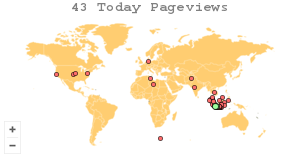SUMBANGAN STUDI AL-QUR'AN BAGI KEILMUAN ISLAM DAN PENDIDIKAN
DOI:
https://doi.org/10.47498/bashair.v1i1.545Keywords:
Qur'anic Studies, Islamic Science, EducationAbstract
Science and technology, especially modern technology, are changing at a very fast pace, while religious movements are very slow, because religion and technology are not in sync. In the Encyclopedia of Religions and Philosophy, it is explained that Islam is the religion of Allah, and he ordered Allah to teach the principles and rules of the Prophet Muhammad. And commissioned him to convey religion to all mankind by inviting them to accept it. One of the distinguishing features of Islam is its emphasis on knowledge. The Qur'an and Sunnah invite Muslims to seek and acquire knowledge and wisdom, and place great importance on those who are knowledgeable. If we look at the verses in the Qur'an about the command to seek knowledge, then we will find that the commandment is universal, especially in the science called religious knowledge. The Qur'an emphasizes whether knowledge is beneficial or not. The criterion of useful knowledge is to approach the knowledge of the Creator as a form of devotion to Him. The encounter between Muslims and the modern world gave birth to various schools of thought, such as the Salaf school with the motto "Back to the Qur'an and Hadith" and the Tajid school with the motto "Forward with the Qur'an". recommends Reformation, as long as it does not castrate the true teachings of Islam, but strengthens, elevates and elevates the dignity of Muslims before the whole world.
References
Azizah Atiqah, Konsep Tarbiyah dalam Al-Qur’an. Analytica Islamica. Vol. 7. No. 1.
Danial, E dan Warsiah N. (2009). Metode Penulisan Karya Ilmiah. Bandung: Laboratorium PKn UP
Departemen Agama RI. (2005). Al-Qur’an dan Terjemahnya. Bandung : Diponegoro.
Fatih Muhamad Rusydi Syadzili. (2018). Model Kepemimpinan dan PengembanganPotensi Pemimpin Pendidikan Islam, Cendekia: Jurnal Studi Keislaman. Vol.4. No.2.
Masduki Yusron. (2016). Kontribusi Keilmuan Al-Qur’an Bagi Umat Islam. Medina-Te, Jurnal Studi Islam. Vol. 14. No. 2.
Nasiri. 2019. Posisi Al-Qur’an Dalam Studi Keislaman. Tasyri’: Vol 26. No. 1.
Nata Abuddin. (2013). Al-Qur’an dan Hadis....
Quraish M. Shihab. (1992). Membumikan Al-Qur’an. Bandung : Penerbit Mizan.
Ramayulis. (1994). Ilmu Pendidikan Islam. Jakarta : Kalam Mulia.
Saleh Abdurrahman Abdullah. (1994). Teori-teori Pendidikan Berdasarkan Al-qur’an, terj. H. M. Arifim dan Zainuddin. Jakarta: PT. Rineka Cipta.
Downloads
Published
Issue
Section
License
Authors who publish articles in Basha'ir: Jurnal Studi Al-Qur'an & Tafsir agree to the following conditions:
- The author retains copyright and grants the Basha'ir Journal the right from the first publication with the work simultaneously licensed under a Creative Commons Attribution-ShareAlike 4.0 International (CC BY-SA 4.0) license that allows others to make changes, adjust and build on the work with recognition of the author's work and initial publication in the Journal.
- Authors are allowed to copy and redistribute published versions of works in journals (for example, posting them to institutional repositories or publishing them in a book), with recognition of their initial publication in Basha'ir: Jurnal Studi Al-Qur'an & Tafsir.
- Authors are allowed and encouraged to post their work online (for example, in institutional repositories or on their websites) before and during the submission process, as it can lead to productive exchanges, and increase citations of published works






